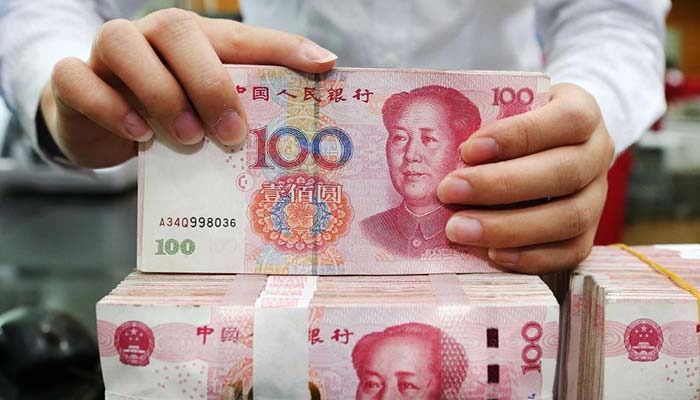
HONG KONG: Asian markets surged Monday after Donald Trump and Xi Jinping agreed to restart trade talks, reviving hopes of an end to their tariff war, while oil prices also rallied on news that Saudi Arabia and Russia will extend their output caps.
Trump's historic visit to North Korea, where he met leader Kim Jong Un, soothed geopolitical concerns and added to the upbeat mood on trading floors.
After a highly anticipated meeting on the sidelines of the G20 summit Saturday, the US president said negotiations to resolve the standoff between the world's two biggest economies were "back on track" and he would hold off imposing threatened new levies on Chinese goods.
Trump also signalled a softer position on Chinese telecom giant Huawei, a major bone of contention in the row, by saying US companies could sell equipment "where there's no great national security problem", White House economic adviser Larry Kudlow said Sunday. China pledged to buy more US agricultural machinery.
While there had been a quiet sense of optimism the talks would end with an agreement to return to the negotiating table, the apparent concession on Huawei took some by surprise and provided some extra buying support.
The news was much-needed after Trump sparked volatility in early May with his shock decision to hit China with new tariffs and halt talks that had seemed to be nearing a positive end.
"After spending the better part of two months in trade war purgatory and with G20 done and dusted, risk markets have responded to Saturday's events," said Stephen Innes at Vanguard Markets.
"Indeed, investors heaved a massive, but exhausted, sigh of relief that both the US and China opted to push the reset button and restart trade negotiations amidst other pleasantries – now we'll have to see whether it all sticks."
'Long way to go'
Shanghai jumped more than two percent while the Chinese yuan climbed to its strongest level in almost two months.
Soft factory activity data indicated continued weakness in the world´s number two economy, though analysts said the readings could press the central People´s Bank of China to unveil fresh stimulus measures.
Tokyo ended 2.1 percent higher, Singapore rallied 1.4 percent and Taipei was up 1.5 percent, with Sydney, Seoul, Mumbai, Jakarta and Manila also higher. Hong Kong was closed for a public holiday.
Seoul was marginally lower, with market heavyweight Samsung Electronics taking a hit from news Japan had imposed restrictions on exports used by South Korea's chip and smartphone companies in a long-simmering row over the use of forced labour during World War Two.
In early trade, London and Paris each rose more than one percent, while Frankfurt jumped 1.8 percent.
Still, analysts expect more bumps in the road.
"The extremely important issue of intellectual property protection continues to be a concern for the US, and there is no amount of tractors or combine harvesters that China can buy to make that issue disappear," said David Madden, market analyst at CMC Markets.
"The US-China trade spat seems to have cooled a little over the weekend, but there is still a long way to go before it is resolved."
Oil prices were also on a roll, with both main contracts jumping nearly three percent as the Trump-Xi agreement came with news that Russia and OPEC cartel kingpin Saudi Arabia had agreed at the G20 to extend a deal to limit output.
Innes added that "even with some long-term uncertainty on US-China trade leaking into the equation, I think medium-term risks to oil prices remained skewed to the upside, as Middle East tension continues to percolate, and we anticipate more easing from the (Chinese central bank). Both positives for oil prices".
The optimistic tone hit demand for safe haven gold, which sank 1.9 percent below $1,400.




0 Comments